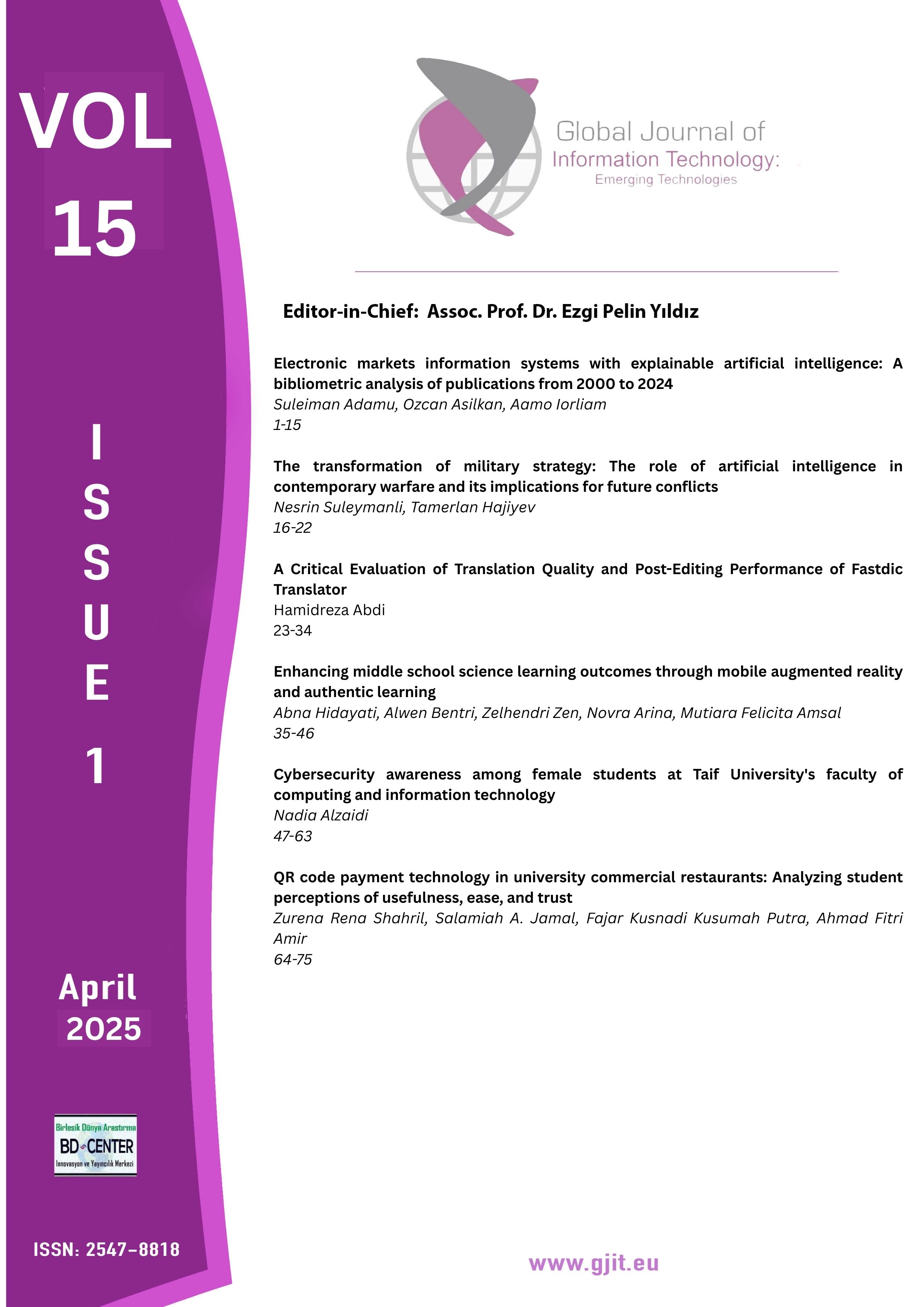Cybersecurity awareness among female students at Taif University's faculty of computing and information technology
Main Article Content
Abstract
This study investigates the level of student awareness regarding cybersecurity concepts and the methods for achieving cybersecurity within a higher education context. While cybersecurity is a critical component of modern digital literacy, there remains a need to assess how well students comprehend both its foundational concepts and practical applications. This study addresses this gap by examining variations in awareness based on academic degree, specialization, and year of study. A descriptive survey design was employed, and data were collected using a structured questionnaire consisting of two domains. The sample comprised 382 students from a college of computers and information technology. The results revealed a high level of awareness of both cybersecurity concepts and strategies for implementation. Statistically significant differences were identified based on academic degree, with higher awareness among female bachelor’s students. Differences were also observed across specializations, favoring students in computer science, information technology, and computer engineering. Additionally, academic year influenced awareness levels, with higher levels reported in the first, third, fourth, and fifth years. The findings emphasize the importance of tailoring cybersecurity education to student demographics and suggest areas for curricular enhancement.
Keywords: Awareness; cybersecurity; digital literacy; higher education; student learning
Downloads
Article Details

This work is licensed under a Creative Commons Attribution-NonCommercial-NoDerivatives 4.0 International License.
Authors who publish with this journal agree to the following terms:- Authors retain copyright and grant the journal right of first publication with the work simultaneously licensed under a Creative Commons Attribution License that allows others to share the work with an acknowledgement of the work's authorship and initial publication in this journal.
- Authors are able to enter into separate, additional contractual arrangements for the non-exclusive distribution of the journal's published version of the work (e.g., post it to an institutional repository or publish it in a book), with an acknowledgement of its initial publication in this journal.
- Authors are permitted and encouraged to post their work online (e.g., in institutional repositories or on their website) prior to and during the submission process, as it can lead to productive exchanges, as well as earlier and greater citation of published work (See The Effect of Open Access).
